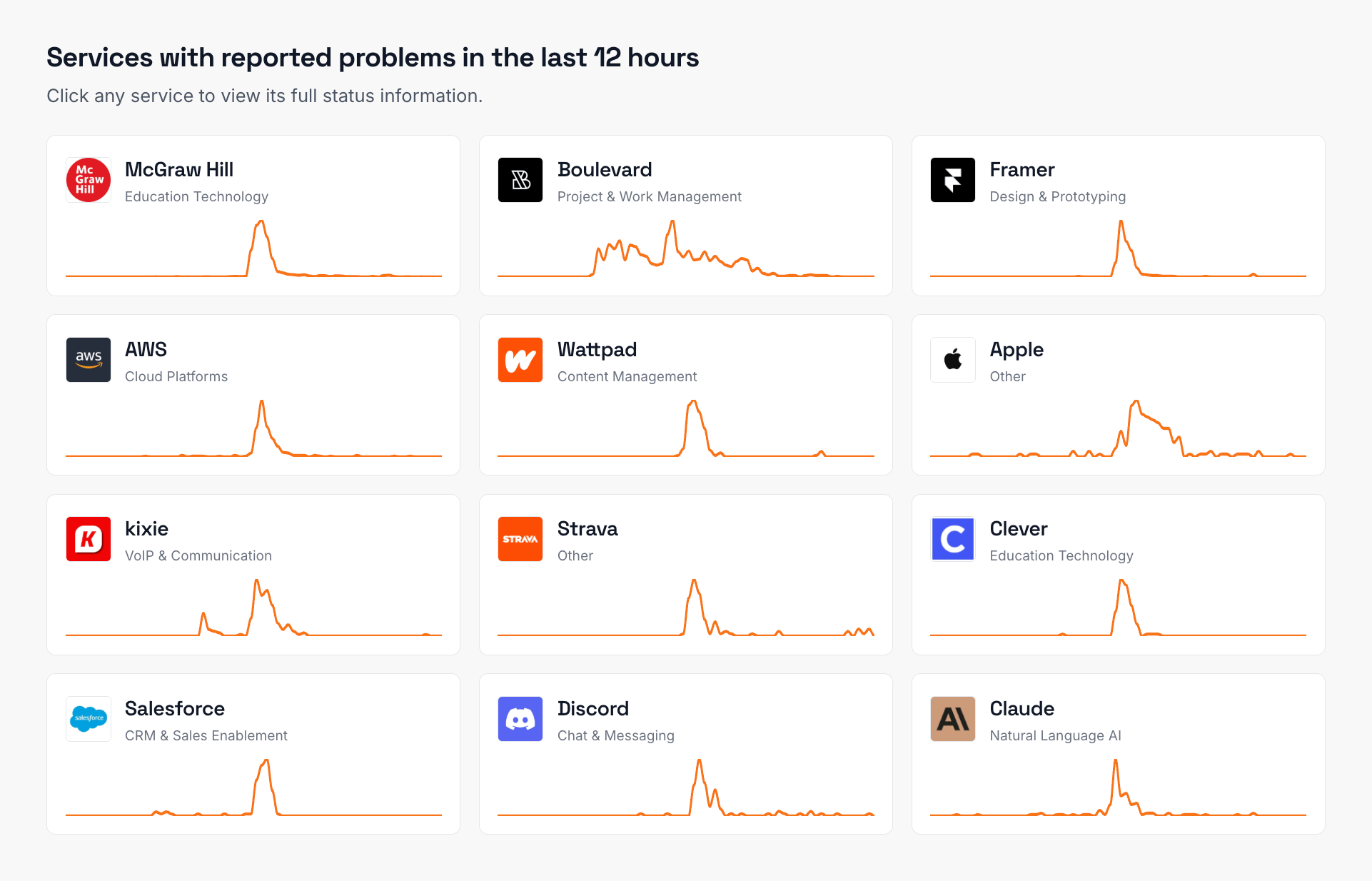What is the Role of IT Ops? Key Responsibilities Explained
The IT ops role serves as the backbone of modern technology infrastructure, ensuring systems run smoothly, securely, and efficiently. IT operations teams manage everything from server maintenance to incident response, making them essential for business continuity.
Understanding what IT operations professionals do helps organizations build stronger technical teams and improve their infrastructure management. Let's explore the core responsibilities, required skills, and evolving nature of IT operations in today's technology landscape.
Core Responsibilities in the IT Ops Role
IT operations teams handle diverse tasks that keep technology infrastructure running. Their responsibilities span multiple areas of technology management and support.
Infrastructure Management
IT ops professionals manage physical and virtual infrastructure components:
Server administration and maintenance
Network configuration and optimization
Storage system management
Cloud resource provisioning and scaling
Hardware lifecycle management
They ensure infrastructure meets performance requirements while staying within budget constraints. This includes capacity planning, resource allocation, and cost optimization across all technology assets.
System Monitoring and Performance
Continuous monitoring forms a critical part of the IT ops role. Teams track system health, performance metrics, and resource utilization across the technology stack.
Key monitoring activities include:
Real-time system performance tracking
Alert configuration and management
Trend analysis and capacity forecasting
Performance optimization initiatives
Resource utilization reporting
Effective monitoring helps prevent issues before they impact users and enables data-driven infrastructure decisions.
Incident Response and Resolution
When systems fail, IT operations teams spring into action. They follow established runbooks to diagnose problems, implement fixes, and restore normal operations quickly.
Incident management involves:
Initial problem detection and triage
Root cause analysis
Solution implementation
Communication with stakeholders
Post-incident documentation
Quick incident resolution minimizes business impact and maintains user satisfaction.
Security and Compliance
IT ops teams play a vital role in maintaining security posture and regulatory compliance. They implement security policies, manage access controls, and ensure systems meet industry standards.
Security responsibilities include:
Patch management and vulnerability remediation
Access control implementation
Security monitoring and threat detection
Compliance auditing and reporting
Incident response coordination
Automation and Process Improvement
Modern IT operations teams focus heavily on automation to improve efficiency and reduce manual errors. They identify repetitive tasks and implement automated solutions.
Automation initiatives cover:
Deployment pipeline automation
Configuration management
Automated testing and validation
Self-healing systems
Process workflow optimization
Essential Skills for IT Operations Success
Success in the IT ops role requires a blend of technical expertise and soft skills. Professionals must adapt to changing technologies while maintaining operational excellence.
Technical Competencies
Strong technical skills form the foundation of effective IT operations:
Operating system administration (Linux, Windows, Unix)
Networking protocols and architecture
Scripting and automation (Python, Bash, PowerShell)
Cloud platforms (AWS, Azure, Google Cloud)
Container technologies (Docker, Kubernetes)
Database management
Monitoring and observability tools
Problem-Solving Abilities
IT ops professionals encounter complex technical challenges daily. Strong analytical and troubleshooting skills help them:
Diagnose system issues quickly
Identify root causes effectively
Develop creative solutions
Implement fixes with minimal disruption
Learn from past incidents
Communication Skills
Clear communication ensures smooth operations and stakeholder satisfaction:
Technical documentation writing
Incident status updates
Cross-team collaboration
Vendor management
Executive reporting
Time Management
Balancing multiple priorities requires excellent time management:
Task prioritization based on business impact
Project deadline management
Emergency response coordination
Planned maintenance scheduling
Continuous improvement initiatives
Evolution of the IT Ops Role
The IT operations landscape continues evolving with technological advances and changing business needs. Understanding these trends helps professionals stay relevant.
DevOps Integration
Traditional boundaries between development and operations continue blurring. IT ops teams now work closely with developers to:
Implement continuous integration/continuous deployment (CI/CD)
Share responsibility for application performance
Collaborate on infrastructure as code
Improve deployment frequency and reliability
Cloud-First Operations
Cloud adoption transforms how IT ops teams work:
Managing hybrid cloud environments
Optimizing cloud costs
Implementing cloud-native architectures
Ensuring multi-cloud compatibility
Maintaining security across cloud platforms
AI and Machine Learning Integration
Artificial intelligence enhances IT operations capabilities:
Predictive analytics for capacity planning
Anomaly detection in system behavior
Automated incident classification
Intelligent alert correlation
Performance optimization recommendations
Building Effective IT Operations Teams
Organizations need structured approaches to build strong IT ops teams. Success depends on clear roles, proper tools, and continuous improvement.
Team Structure and Roles
Effective IT operations teams include diverse roles:
Systems administrators
Network engineers
Database administrators
Security specialists
Automation engineers
Site reliability engineers
Each role brings specialized expertise while contributing to overall operational excellence.
Tools and Technologies
Modern IT ops teams rely on comprehensive toolsets:
Monitoring and observability platforms
Configuration management systems
Incident management solutions
Automation frameworks
Documentation platforms
Choosing the right tools improves efficiency and reduces operational overhead. For teams managing multiple third-party services, status page aggregators help centralize vendor monitoring and incident tracking.
Continuous Learning Culture
Technology changes rapidly, making continuous learning essential:
Regular training programs
Certification opportunities
Knowledge sharing sessions
Conference attendance
Hands-on lab environments
Measuring IT Operations Success
Quantifying IT ops performance helps teams improve and demonstrate value to stakeholders.
Key Performance Indicators
Common metrics for evaluating IT operations include:
System uptime and availability
Mean time to resolution (MTTR)
Incident volume trends
Change success rates
Customer satisfaction scores
Cost per transaction
Automation percentage
Regular metric review identifies improvement opportunities and validates operational strategies.
Continuous Improvement
Successful IT ops teams embrace continuous improvement:
Regular retrospectives after incidents
Process optimization initiatives
Technology stack modernization
Skill development programs
Feedback loop implementation
Future of IT Operations
The IT ops role continues evolving with emerging technologies and business demands. Professionals must prepare for upcoming changes while maintaining current operations.
Emerging Trends
Several trends shape the future of IT operations:
Increased automation and AI adoption
Edge computing management
Serverless architecture operations
Quantum computing preparation
Sustainability initiatives
Career Development
IT operations professionals have numerous career advancement opportunities:
Specialization in emerging technologies
Leadership and management roles
Architecture and design positions
Consulting opportunities
Cross-functional transitions
Investing in skills development and staying current with industry trends ensures long-term career success in IT operations.
Frequently Asked Questions
What exactly does someone in an IT ops role do daily?
Professionals in IT ops roles monitor system health, respond to incidents, perform maintenance tasks, and implement improvements. Daily activities include checking monitoring dashboards, reviewing alerts, updating documentation, collaborating with other teams, and working on automation projects to enhance operational efficiency.
How does the IT ops role differ from DevOps?
While IT ops focuses primarily on maintaining and operating existing infrastructure, DevOps combines development and operations practices. IT operations teams traditionally handle production systems, while DevOps emphasizes collaboration between developers and operations throughout the entire software lifecycle, including continuous integration and deployment.
What certifications benefit IT operations professionals?
Valuable certifications include CompTIA Server+, Linux Professional Institute Certification (LPIC), Microsoft Azure Administrator, AWS Certified SysOps Administrator, and ITIL Foundation. These certifications validate technical skills and operational knowledge, helping professionals advance their careers and demonstrate expertise to employers.
How much coding knowledge do IT ops professionals need?
IT ops professionals benefit from intermediate scripting abilities in languages like Python, Bash, or PowerShell. While not requiring software developer-level programming skills, automation and infrastructure as code practices make coding knowledge increasingly important for modern IT operations roles.
What salary range can IT operations professionals expect?
IT operations salaries vary by location, experience, and specialization. Entry-level positions typically start at $50,000-$70,000 annually, while experienced professionals earn $80,000-$120,000. Senior roles and specialized positions in high-cost areas can exceed $150,000, with additional compensation through bonuses and benefits.
How can organizations improve their IT operations teams?
Organizations can enhance IT operations by investing in training, implementing modern tools, fostering collaboration between teams, and creating clear career paths. Establishing metrics-driven improvement processes, embracing automation, and maintaining competitive compensation packages also help build and retain strong IT operations teams.
 Nuno Tomas
Founder of IsDown
Nuno Tomas
Founder of IsDown
The Status Page Aggregator with Early Outage Detection
Unified vendor dashboard
Early Outage Detection
Stop the Support Flood
Related articles
Never again lose time looking in the wrong place
14-day free trial · No credit card required · No code required





